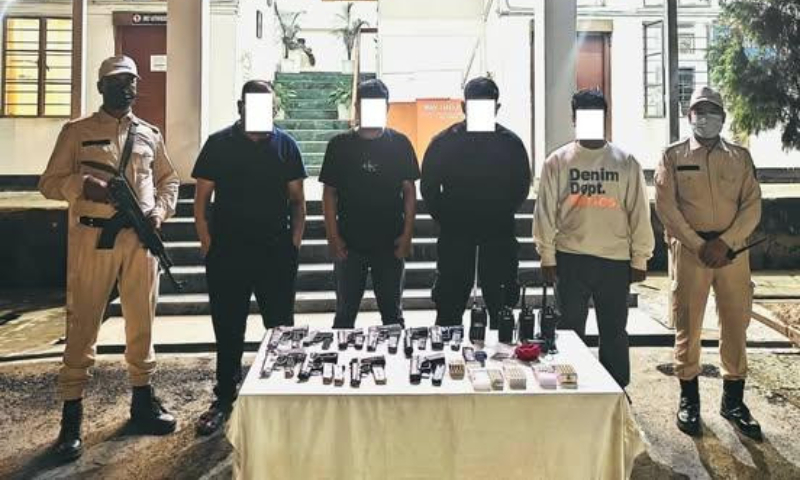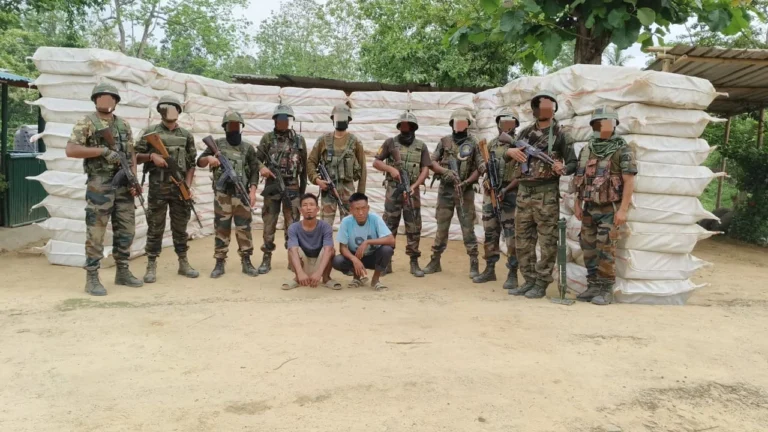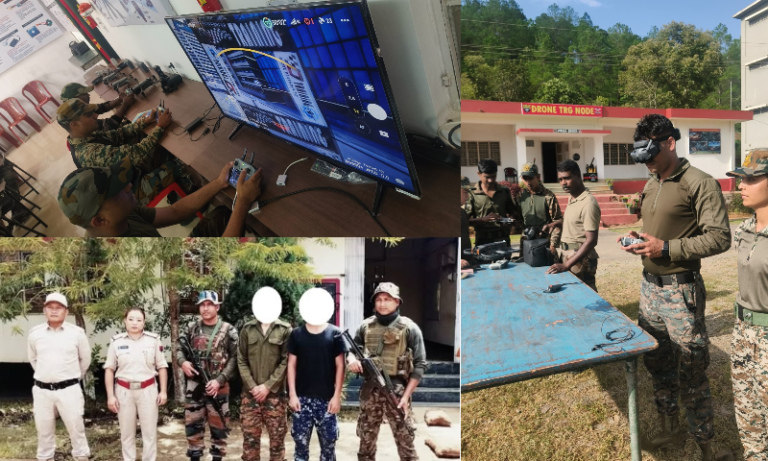UNLF‑P Condemns “Spotlighting” After Arrest of Key Member
Summary
The Pambei-led faction of Manipur’s United National Liberation Front (UNLF‑P) has criticized the Manipur and Central governments for “spotlighting” and defaming the group following the arrest of its Central Committee member Sinam Pankhei (aka Somendro) by Manipur police. Authorities allege that the group was involved in arms smuggling, recovering multiple high-caliber pistols and ammunition from Imphal. The UNLF‑P defended itself, stating that the seized weapons were either licensed or issued by the Peace Monitoring Committee under its 2023 peace agreement with the Centre. They condemned what they call the police’s “habit of arresting people first and then concocting charges for reward” and asked for the government to halt such tactics.
Introduction
Have you ever wondered what happens when a group in peace talks gets accused of wrongdoing? It’s a drama packed with intrigue, legal battles, and politics. Recently, the Pambei faction of UNLF—one of Manipur’s long-standing insurgent outfits—found itself at the center of such a storm. Following a key arrest and allegations of arms smuggling, they’ve hit back hard, accusing the police of orchestrated defamation.
In this deep dive, we’ll unpack the backstory, the allegations, how UNLF‑P responded, what it means for peace efforts, and where things might go from here. It’s a rollercoaster of trust, tension, and transformation.
The arrest of Sinam Pankhei: what happened?
On June 27, 2025, Manipur police arrested Sinam Pankhei (a.k.a. Somendro), a Central Committee member of UNLF‑P, along with three associates in Imphal.
Police allege they recovered:
- Multiple pistols—including Smith & Wesson, Sig Sauer, Glock, Beretta—of various calibers
- Extra ammunition
- Mobile phones and walkie-talkies
Authorities claim the group was clandestinely planning to smuggle these arms within the valley, potentially fueling unrest. But UNLF‑P insists there’s more nuance.
UNLF‑P’s firm rebuttal
In a swift statement, the outfit called the allegations “spotlighting”—a politically charged attempt to tarnish their image. Their key points:
- Licensed or PMC-approved weapons: They claim that four of the seized pistols were officially issued to their security wing’s officers under PMC approval. Two other weapons—a JD Taurus and a Falcon—were licensed as per law
- Pre-storage collection: The group says additional weapons seized—like Keltec, Beretta, and FN Browning—were merely being gathered for storage in their armoury, not for smuggling.
- False link with another weapon: UNLF‑P strongly denies involvement with an M‑20 Falcon pistol, insisting the police planted this charge erroneously.
- Pattern of wrongful arrests: They lambasted the state police for a “habit” of arresting first and then framing charges to collect rewards—a veiled nod to alleged bounty systems
Conclusion: The peace test
The arrest of Pankhei isn’t just a headline—it’s a test. Can Manipur balance peace commitments with enforcement? Can UNLF‑P prove its sincerity? Will the PMC stand or sink under scrutiny?
In conflict resolution, trust grows slowly but can be shattered overnight. How both sides navigate this will echo loudly across Northeast India—whether peace truly takes root or collapses under distrust.
Frequently Asked Questions
- What makes the peace deal “historic”?
The 2023 pact was the first time a Meitei insurgent outfit signed a formal ceasefire and engagement agreement with the Indian government—marking a shift from decades of violence to dialogue - Why are arms still an issue post-agreement?
Peace deals often include gradual disarmament. Weapons may remain in storage temporarily for security until verified and accounted for by the PMC. - Is UNLF‑P’s critique of “spotlighting” credible?
It raises valid concerns: blame without evidence undermines trust. However, it’s up to courts and oversight panels to confirm legitimacy. - What is the Peace Monitoring Committee?
A joint panel formed by the Centre and UNLF‑P to oversee disarmament, arms custody, security provisions, and adherence to the peace agreement - Can this derail the peace process?
That depends. If resolved transparently, it could reinforce trust. If mishandled, it may embolden hardliners and stall integration efforts.


